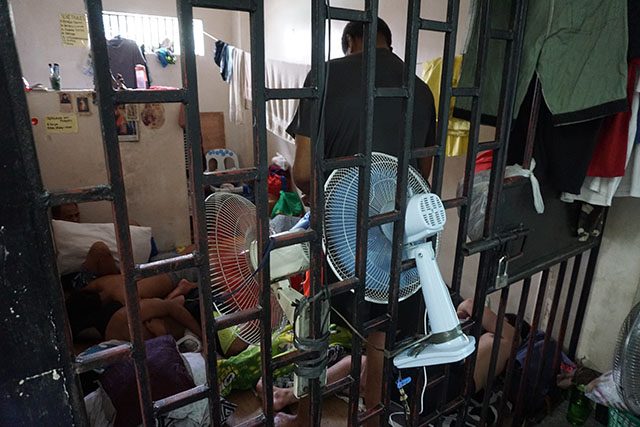
The tip-off came from the FBI: details of an arrest in the United States, the accused’s social media profiles, and a host of photographs showing young Filipina girls engaged in sex acts.
Led by police in the Philippines, a new global anti-child sex abuse taskforce started dissecting the U.S. citizen’s digital footprint in order to track down the exploited girls.
“Those images were very sexually explicit … disturbing,” said William Macavinta, the Filipino police general heading the unit that launched this year to combat cybersex trafficking – a form of modern slavery where children are abused over webcam.
“It was clear that we had to move fast to extract the children,” said Macavinta, whose country is considered by campaigners to be the epicentre of the fast-growing trade.
Three weeks later, British and Australian cops assembled with their local counterparts one evening just before dusk, and raided a slum located on fishing docks in the capital, Manila.
The task force did not find the alleged local offender but rescued five girls aged 10 to 13 who had been groomed and directed to perform sex acts over livestream by the American.
Tens of thousands of girls in the Philippines are estimated by charities to be trapped in the sex trade, with a growing number abused online for global clients due to the country’s cheap internet, high standard of English and widespread poverty.
The Southeast Asian nation received about 60,000 reports of online child sexual exploitation last year – up a third on 2017 – said a U.S. investigator working in the Philippines with the International Justice Mission (IJM), an anti-trafficking group.
From Australia and the United States to Britain, major nations are boosting efforts to stop their citizens fueling an illicit business believed to be spreading across Southeast Asia.
But obstacles are aplenty. Many victims are exploited by their own families and unable or afraid to speak out, while the encrypted nature of modern technology from messaging to video call apps makes criminals tough to track, according to police.
“This hidden crime is very difficult to shut down,” said Macavinta, citing strict privacy laws that make it tough for police to monitor suspects and make arrests without a warrant.
“Referrals from foreign law enforcement – that’s how we know these things (online child sex abuse cases) are happening.”
“Cunning, clever, desperate”
The Philippine Internet Crimes Against Child Center (PICACC) was launched in February and is home to officials from the Australian Federal Police (AFP) and Britain’s National Crime Agency (NCA), as well as representatives from the IJM.
The task force has also forged links with authorities in the United States, Canada, Sweden, Germany and the Netherlands.
“Historically, there hadn’t been a lot of cooperation,” said Richard Stanford, a police detective heading up the Australian contingent, adding that different nations and local agencies had previously been working on cases “in ignorance of each other.”
Every report of online child sex abuse, raised in the Philippines or abroad, now goes to the task force, where experts in online forensics, criminal investigation and child protection work hand-in-hand to track down offenders and their victims.
Stanford said Australia had a moral and legal responsibility to tackle the crime in the Philippines, having provided a “disproportionate number of pedophiles to Southeast Asia”.
And a 2017 Australian law preventing the country’s more than 23,000 convicted pedophiles from travelling abroad could in fact accelerate the rise of cybersex child trafficking, he said.
“Good intention (with the law), but it means there’ll be a corresponding increase in online sexual abuse,” Stanford added.
“We are looking at predators … very, very cunning … extremely clever, desperate … who go to great lengths to achieve their ends,” he told the Thomson Reuters Foundation.
Britain this month said it would give three million pounds in aid funding to the NCA to investigative British pedophiles who travel to “high risk” foreign countries such as the Philippines.
Filipina senator Loren Legarda has urged other nations to get tougher on predators who watch abuse online by amending their laws to enact harsher punishments. The Philippines‘ anti-trafficking legislation carries the threat of life in prison.
Catch in the act
No data exists on the number of child victims of cybersex trafficking, but at least 784,000 people in the Philippines or one in 130 are estimated to be trapped in modern-day slavery, found the Global Slavery Index by the Walk Free Foundation.
Police say the crime is growing and has been fueled by factors ranging from well-established money wiring services to affordable, high-speed internet coverage across the country.
At least half of the population had internet access as of 2016, up from a quarter in 2010, according to World Bank data.
Abusers can earn up to $100 per show in a country where about a fifth of its 105 million people live in poverty – earning less than $2,000 a year – government figures show.
All but a few cybersex trafficking cases involve children being abused by their relatives or family friends, and half of the victims are aged 12 or younger, police and the IJM said.
“Reporting on them is not natural, culturally” said the U.S. investigator, a former SWAT team member who declined to be identified due to his involvement in ongoing operations. “Some of the children, they don’t even understand that this is wrong.”
The trade has grown quickly in communities rife with crime, where it is seen as less risky than selling drugs, he added.
The international command center took on 33 new cases during its first month in action, adding to a backlog of hundreds of investigations brought to the table by the various agencies.
But police say they are often hamstrung by laws stating that abusers must be caught in the act to justify an arrest, or be notified when an arrest warrant is issued during investigations.
While most operations to rescue children are a success, their exploiters often escape, as was the case with the recent operation in the fishing dock slum, according to investigators.
The alleged offender a 17-year-old girl was not found during the raid and is likely abusing others, officers said.
“The most effective method is to catch them in the act of committing the crime,” said the U.S. investigator with the IJM.
“But that’s not always possible. It’s very challenging.” —Reporting by Matt Blomberg @BlombergMD; Editing by Kieran Guilbert, Thomson Reuters Foundation









